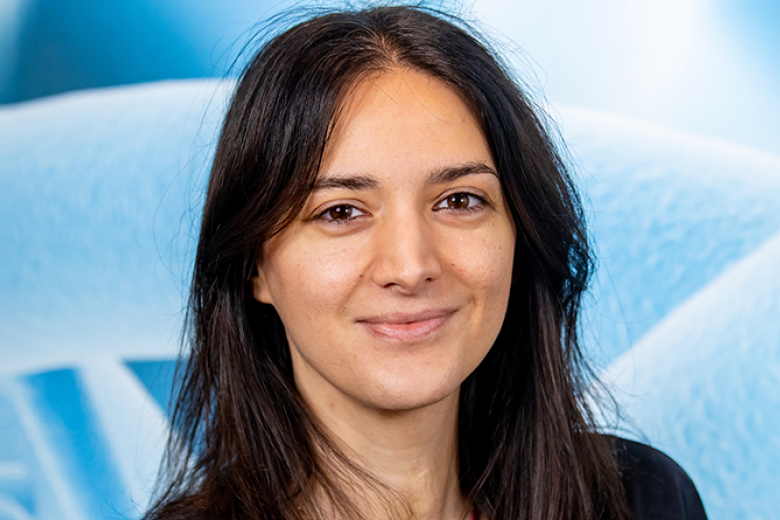Machine Learning (ML)
Many of the most visible advances in the field of Data Science all require some form of machine learning techniques. Machine learning is a central topic of interest to DKE, with applications spanning multiple research themes.
This is an old research theme of the Department of Data Science and Knowledge Engineering (DKE). DKE has become the Department of Advanced Computing Sciences.
Machine learning is a sub-field of Artificial Intelligence that aims to develop self-improving computer systems and discover the fundamental laws of learning. The field develops ways for computers to learn how to perform tasks, through trial and error or by having the machine look at examples and working out how to do it by itself. This contrasts conventional ways of programming, which mostly present pre-defined sets of instructions for a computer to follow.
Machine learning requires knowledge of calculus, linear algebra, statistics, optimization and so on. It is – among others – involved in research on knowledge representation, search and games, robotics, and multi-agent systems. DKE is either involved or has expertise in all of these fields. As such, machine learning is a topic of interest across the department as a whole.
Research focus and application
Due to its central role in Data Science, machine learning plays a role in a significant number of DKE research projects. Notable examples include applications such as breast cancer classification, predicting drug-induced gene expression changes, human visual cortex activity interpretation, life quality improvement for the elderly, study selection help, e-coaching, and so forth.
In addition to these application areas, we also develop new techniques for recommender systems, reliable predictions, human-brain-based techniques for deep learning, kernel based deep learning methods, etc.
Machine Learning in practiceDr. Stelios Asteriadis on improving quality of life for patients with dementia through deep learning |
Researchers
Highlighted publications
Alvanitopoulos, P., Diplaris, S., de Gelder, B., Shvets, A., Benayoun, M., Koulali, P., Moghnieh, A., Shekhawat, Y., Stentoumis, C., Hosmer, T., Anadol, R., Borreguero, M., Martin, A., Sciama, P., Avgerinakis, K., Petrantonakis, P., Briassouli, A., Mille, S., Tellios, A., ... Kompatsiaris, I. (2019). MindSpaces: Art-driven Adaptive Outdoors and Indoors Design. In 9th International Conference on Digital Presentation and Preservation of Cultural and Scientific Heritage (DiPP): DiPP2019 (Vol. 9, pp. 391-400). Digital presentation and preservation of cultural and scientific heritage
Alvarez, F., Popa, M., Solachidis, V., Hernandez-Penaloza, G., Belmonte-Hernandez, A., Asteriadis, S., Vretos, N., Quintana, M., Theodoridis, T., Dotti, D., & Daras, P. (2018). Behavior Analysis through Multimodal Sensing for Care of Parkinson's and Alzheimer's Patients. Ieee Multimedia, 25(1), 14-25. https://doi.org/10.1109/MMUL.2018.011921232
Dotti, D., Popa, M., & Asteriadis, S. (2020). A hierarchical autoencoder learning model for path prediction and abnormality detection. Pattern Recognition Letters, 130, 216-224. https://doi.org/10.1016/j.patrec.2019.06.030
Dotti, D., Popa, M., & Asteriadis, S. (2020). Being the center of attention: A Person-Context CNN framework for Personality Recognition. Transactions on Interactive Intelligent Systems, 10(3), [19]. https://doi.org/10.1145/3338245
Ghaleb, E., Popa, M., & Asteriadis, S. (2019). Multimodal and Temporal Perception of Audio-visual Cues for Emotion Recognition. In 8th International Conference on Affective Computing & Intelligent Interaction (ACII 2019), Cambridge, United Kingdom
Ismailoglu, F., Cavill, R., Smirnov, E., Zhou, S., Collins, P., & Peeters, R. (2020). Heterogeneous Domain Adaptation for IHC Classification of Breast Cancer Subtypes. IEEE/ACM Transactions on Computational Biology and Bioinformatics, 17(1), 347-353. https://doi.org/10.1109/TCBB.2018.2877755
Ismailoglu, F., Smirnov, E., Peeters, R., Zhou, S., & Collins, P. (2018). Heterogeneous Domain Adaptation Based on Class Decomposition Schemes. In D. Phung, V. Tseng, G. Webb, B. Ho, M. Ganji, & L. Rashidi (Eds.), Advances in Knowledge Discovery and Data Mining: PAKDD 2018 (pp. 169-182). Springer. Lecture Notes in Computer Science Vol. 10937 https://doi.org/10.1007/978-3-319-93034-3_14
Jin, H., Goossens, P., Juhasz, P., Eijgelaar, W-J., Manca, M., Karel, J., Smirnov, E., Sikkink, C. J. J. M., Mees, B., Waring, O., van Kuijk, K., Fazzi, G., Gijbels, M., Kutmon, M., Evelo, C., Hedin, U., Daemen, M. J., Sluimer, J., Matic, L. P., & Biessen, E. (2021). Integrative multiomics analysis of human atherosclerosis reveals a serum response factor-driven network associated with intraplaque hemorrhage. Clinical and Translational Medicine, 11(6), [e458]. https://doi.org/10.1002/ctm2.458
Kroner, A., Senden, M., Driessens, K., & Goebel, R. (2020). Contextual encoder-decoder network for visual saliency prediction. Neural Networks, 129, 261-270. https://doi.org/10.1016/j.neunet.2020.05.004
Mehrkanoon, S. (2018). Indefinite kernel spectral learning. Pattern Recognition, 78, 144-153.
Mehrkanoon, S. (2019). Deep neural-kernel blocks. Neural Networks, 116, 46-55. https://doi.org/10.1016/j.neunet.2019.03.011
Montulet, R., & Briassouli, A. (2019). Deep Learning for Robust end-to-end Tone Mapping. In British Machine Vision Conference Proceedings https://bmvc2019.org/programme/detailed-programme/
Montulet, R., & Briassouli, A. (2020). Densely Annotated Photorealistic Virtual Dataset Generation for Abnormal Event Detection. In Proceedings of the International Conference on Pattern Recognition, ICPR 2020: ICPR FGVRID Workshop: Fine-Grained Visual Recognition and re-Identification
Morsomme, R., & Smirnov, E. (2019). Conformal Prediction for Students' Grades in a Course Recommender System. In Proceedings of Machine Learning Research: Conformal and Probabilistic Prediction and Applications, 9-11 September 2019, Golden Sands, Bulgaria (Vol. 105, pp. 196-213). Proceedings of Machine Learning Research http://proceedings.mlr.press/v105/morsomme19a/morsomme19a.pdf
Nikolaev, N. Y., Smirnov, E., Stamate, D., & Zimmer, R. (2019). A regime-switching recurrent neural network model applied to wind time series. Applied Soft Computing, 80, 723-734. https://doi.org/10.1016/j.asoc.2019.04.009
Roos, N. (2018). Learning-Based Diagnosis and Repair. Communications in Computer and Information Science, 823, 1-15.
Seiler, C., Ferreira, A-M., Kronstad, L. M., Simpson, L. J., Le Gars, M., Vendrame, E., Blish, C. A., & Holmes, S. (2021). CytoGLMM: conditional differential analysis for flow and mass cytometry experiments. BMC Bioinformatics, 22(1), [137]. https://doi.org/10.1186/s12859-021-04067-x
Warnes, Z., & Smirnov, E. (2020). Course Recommender Systems with Statistical Confidence. In Proceedings of the 13th International Conference on Educational Data Mining, EDM 2020, Fully virtual conference, July 10-13, 2020 (pp. 509-515). educationaldatamining.org. https://educationaldatamining.org/files/conferences/EDM2020/papers/paper_103.pdf
Zhou, S., Smirnov, E., Schoenmakers, G., Peeters, R., & Wu, X. (2020). Conformal Feature-Selection Wrappers and ensembles for negative-transfer avoidance. Neurocomputing, 397, 309-319. https://doi.org/10.1016/j.neucom.2019.09.105












